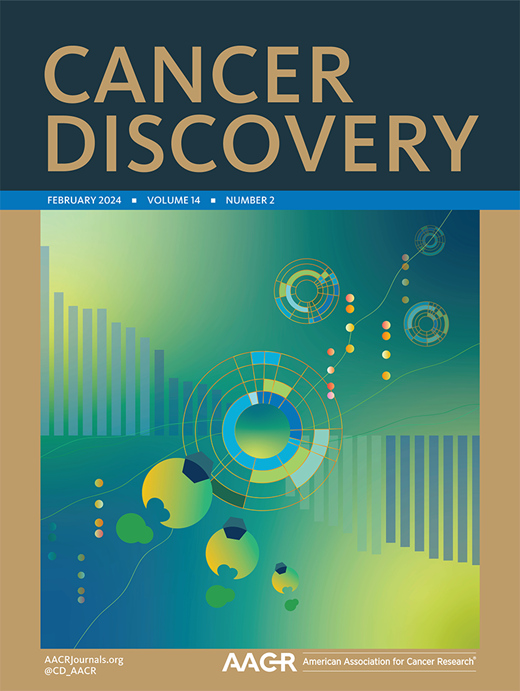RORγ bridges cancer-driven lipid dysmetabolism and myeloid immunosuppression
IF 29.7
1区 医学
Q1 ONCOLOGY
引用次数: 0
Abstract
Despite well-documented metabolic and hematopoietic alterations during tumor development, the mechanisms underlying this crucial immunometabolic intersection remain elusive. Of particular interest is the connection between lipid metabolism and the retinoic-acid-related orphan receptor (RORC1/RORγ), whose transcriptional activity modulates cancer-related emergency myelopoiesis and is boosted by cholesterol metabolites, while hypercholesterolemia itself is associated with dysregulated myelopoiesis. Here, we show that cancer and hypercholesterolemic diet independently or cooperatively activate RORγ-dependent expansion of myeloid-derived suppressor cells (MDSCs) and M2-polarized tumor-associated macrophages (TAMs), supporting cancer spread. Moreover, we report that tumor-induced expression of IL-1b and IL-6 promotes hepatic expression of proprotein convertase subtilisin/kexin type 9 (PCSK9) in preclinical models and patients. Importantly, lowering cholesterol levels, by genetic or pharmacological inhibition of PCSK9, prevents MDSC expansion, M2 TAM accumulation and tumor progression in a RORγ-dependent manner, unleashing specific anti-tumor immunity. Overall, we identify RORγ as a key sensor of lipid disorders, bridging hypercholesterolemia and pro-tumor myelopoiesis.RORγ在癌症驱动的脂质代谢异常和骨髓免疫抑制之间起着桥梁作用
尽管在肿瘤发展过程中有充分的代谢和造血改变,但这种关键的免疫代谢交叉的机制仍然难以捉摸。特别令人感兴趣的是脂质代谢与维甲酸相关孤儿受体(RORC1/RORγ)之间的联系,其转录活性调节癌症相关的紧急髓细胞生成,并由胆固醇代谢物促进,而高胆固醇血症本身与髓细胞生成失调有关。在这里,我们发现癌症和高胆固醇血症饮食单独或协同激活rr γ依赖的髓源性抑制细胞(MDSCs)和m2极化肿瘤相关巨噬细胞(tam)的扩张,支持癌症扩散。此外,我们报道了肿瘤诱导的IL-1b和IL-6的表达在临床前模型和患者中促进了蛋白质转化酶枯草杆菌素/酮素9型(PCSK9)的肝脏表达。重要的是,通过遗传或药理学抑制PCSK9降低胆固醇水平,以rorγ依赖的方式阻止MDSC扩张、M2 TAM积累和肿瘤进展,释放特异性抗肿瘤免疫。总的来说,我们发现RORγ是脂质紊乱、桥接高胆固醇血症和促肿瘤骨髓生成的关键传感器。
本文章由计算机程序翻译,如有差异,请以英文原文为准。
求助全文
约1分钟内获得全文
求助全文
来源期刊

Cancer discovery
ONCOLOGY-
CiteScore
22.90
自引率
1.40%
发文量
838
审稿时长
6-12 weeks
期刊介绍:
Cancer Discovery publishes high-impact, peer-reviewed articles detailing significant advances in both research and clinical trials. Serving as a premier cancer information resource, the journal also features Review Articles, Perspectives, Commentaries, News stories, and Research Watch summaries to keep readers abreast of the latest findings in the field. Covering a wide range of topics, from laboratory research to clinical trials and epidemiologic studies, Cancer Discovery spans the entire spectrum of cancer research and medicine.
 求助内容:
求助内容: 应助结果提醒方式:
应助结果提醒方式:


